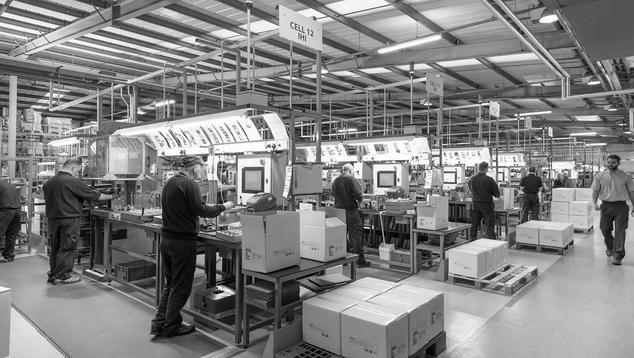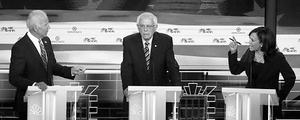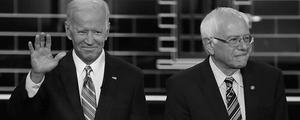There is certainly evidence that Americans' take on the national economy has become more positive in recent years. Although the month-to-month numbers vary, Gallup's Economic Confidence Index has been as high over the past year as it has been since the end of the dot-com boom in the early 2000s.
Plus, the 14% of Americans who now mention an aspect of the economy as the nation's top problem is within two percentage points of the lowest such percentage measured at any point by Gallup in its recent history of netting out economic mentions. The all-time low of 12% mentioning the economy as the top problem was recorded in February and in September 2018.
Not All Economic Perceptions Are Positive
But, as Gallup contributor Lance Tarrance pointed out in his recent review, the currently positive sentiments about the general state of the national economy give Americans the latitude to focus on more personal issues -- including for many their not-so-positive financial situations. Lance notes: "As the economy has improved during Trump's presidency, Americans' anxiety about most financial matters has not."
Indeed, while 56% of Americans rate their personal financial situation as "excellent" or "good," 44% say it is "only fair" or "poor." And while a majority of 66% say they have enough money to live comfortably, 33% say they do not. Lance reviews in detail more evidence of the public's lingering personal financial anxiety.
And, even though perceptions of the national economy are high on a relative basis, these sentiments are by no means universal. While a majority of 53% of Americans may currently rate the national economy as excellent or good, 46% say it is only fair or poor. A majority of 54% say the national economy is getting better, but 37% say it is getting worse.
Presidential candidates approaching the looming 2020 election thus face an environment in which voters' views of the national economy are generally positive -- but also one in which nontrivial segments of the population remain negative, both nationally and about their personal economic situations. As is true for most issues, the reality of public opinion is complex and nuanced, not black and white.
President Donald Trump, naturally enough, misses few opportunities to focus on the positive aspect of the situation, extolling what he defines as the greatest economic times in U.S. history: "We have the strongest stock market in the history of our country" and "Our unemployment numbers are historic, in the sense that we've never had better numbers."
Trump argues that the state of the economy should make his re-election a shoo-in: "When you have the best unemployment numbers in history, when you have the best economy probably that we've ever had, I don't know. Now how the hell do you lose this election, right?"
Democratic Candidates Using the 'Yes, but …' Strategy
Democrats certainly disagree with Trump's assessment but face the challenge of figuring out just how best to position themselves on the economy given the underlying dynamics of public perception. Should they ignore the positive and just focus on the negative, should they acknowledge the positive and then shift to the negative, or should they adopt some other strategy?
Like most political candidates, Democrats are presumably loath to give their opponent credit for anything. But the fact that real-world economic indicators and public opinion assessments are at record-high levels seems difficult to ignore. Strategic wisdom often says that the road to victory is acknowledging your opponent's strengths before pointing out their weaknesses. A number of Democratic presidential candidates have seemingly taken this approach (recognizing that the economy may be doing well, and then quickly pivoting to a "but …" clause) with different types of caveats.
Bernie Sanders acknowledges that "the economy is doing well" -- while promptly appending, "And I'm sure I don't have to give Trump any credit." Elsewhere, Sanders focuses on those not benefiting from the improved economy: "We will no longer accept 46% of all new income going to the top 1%, while millions of Americans are forced to work two or three jobs just to survive and over half of our people live paycheck to paycheck. We will no longer accept a situation in which, in the wealthiest country in the history of the world, our younger generation will have a lower standard of living than their parents."
Kamala Harris says: "Frankly, this economy is not working for working people."
Joe Biden acknowledges the growing economy -- but says it is a result of the Obama administration's policies and practices and that Trump is "squandering" it.
Elizabeth Warren also acknowledged in this year's first Democratic presidential primary debate that the economy is doing "great" -- but only for those with money, and that it "isn't doing great for everyone else." Along these same lines, Warren argued in May that "the overall numbers about GDP or the stock market are great but they don't reflect the lived experiences of most Americans."
Warren has recently advanced another strategy to work around voters' positive views of the economy under Trump. She predicts that the economy is going to crash, which in itself implicitly acknowledges that the economy is doing OK now (you can't crash from an already bad economy).
Warren and her campaign team have seemingly decided that the best way to deal with the conundrum of justifying massive changes in the economy at a time when the economy is perceived in quite a positive light is to argue that the good economic times will quickly come to an end. For this to work, of course, Warren will need Americans to agree with her that the current system is on shaky ground, or the current system will need to go into a nosedive as she predicts.
In all of these instances, the Democratic candidates are assuming that voters buy into the "but …" clauses. Certainly, as Lance points out, this type of appeal will resonate with those who have significant personal financial anxiety, or who do not perceive the national economy is doing well. But how well it plays with a more generally positive population -- only a small number of whom say that economic issues are the nation's most important problem -- remains to be seen.
Other Tactics
Recognizing that many Americans are positive about the economy could lead to still other tactics. Democratic candidates could appeal to voters' eleemosynary instincts -- emphasizing that even if the economy is doing well, they should be concerned about others who are being left behind. (This is certainly the approach now adopted by Sanders, who along with his wife has enjoyed seven-figure incomes in recent years).
And there is the "there but for the grace of God, go I" argument -- that even if one is personally doing well today, one could quickly be doing not so well tomorrow. This is a central argument in the late Harvard philosopher John Rawls' A Theory of Justice: How would we arrange a system of economic rewards if we operated behind a veil of ignorance and were blind to where we would end up in the system?
Trump Faces the Same Challenge
The Trump campaign must make its own decisions on how to position the president. Currently, Trump's strategy appears to be a relentless focus on the positive aspects of the economy. But his insistence that the improving economy is benefiting everyone up and down the economic spectrum, as we have seen, is at least partially belied by the not-so-insignificant percentages of the population who have negative views of the overall economy and their own personal financial situations.
The Path Forward
We know from history that the state of the economy can change quickly. If that happens, every presidential candidate's strategy on the economy is going to shift. But if things stay as they are now, both Trump and the Democratic candidates are going to have the best chance of success by acknowledging that the economy is currently doing well by most historical measures, while at the same time providing some focus on the fact that many voters may still feel economically left behind.
The two elected presidents who since World War II lost their bids for re-election -- Jimmy Carter and George H.W. Bush -- were felled by negative perceptions of the economy. Famously, Bill Clinton in one of the three 1992 presidential debates gained significant positioning on incumbent Bush by approaching a town hall questioner and directly connecting with her personal financial angst -- after Bush had fumbled her question with a defensive answer.
Democrats are hoping that Trump in similar fashion will fail to connect with average voters, but Democrats themselves have to be cautious that they don't ignore or discount the relatively positive economic environment.




